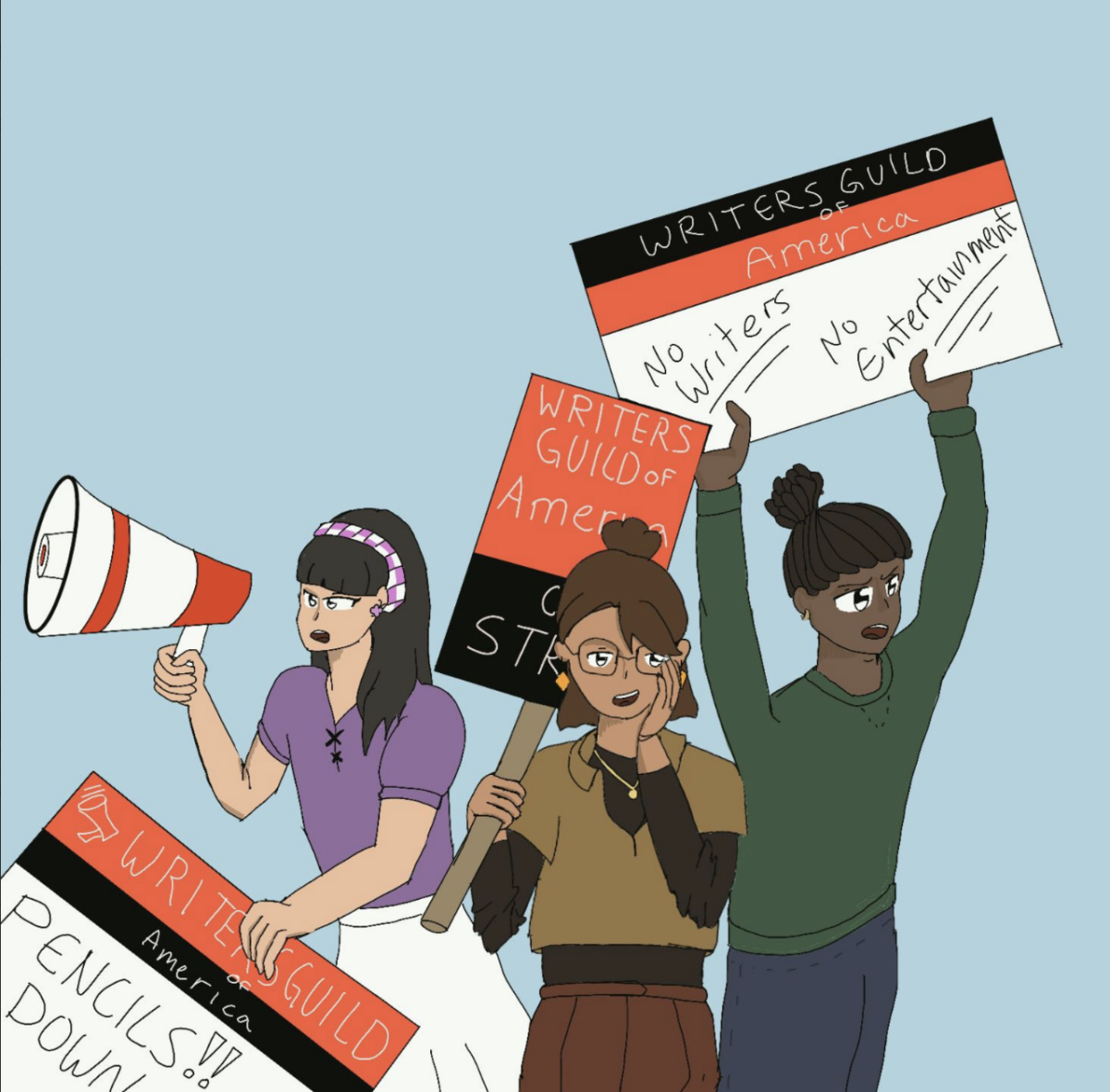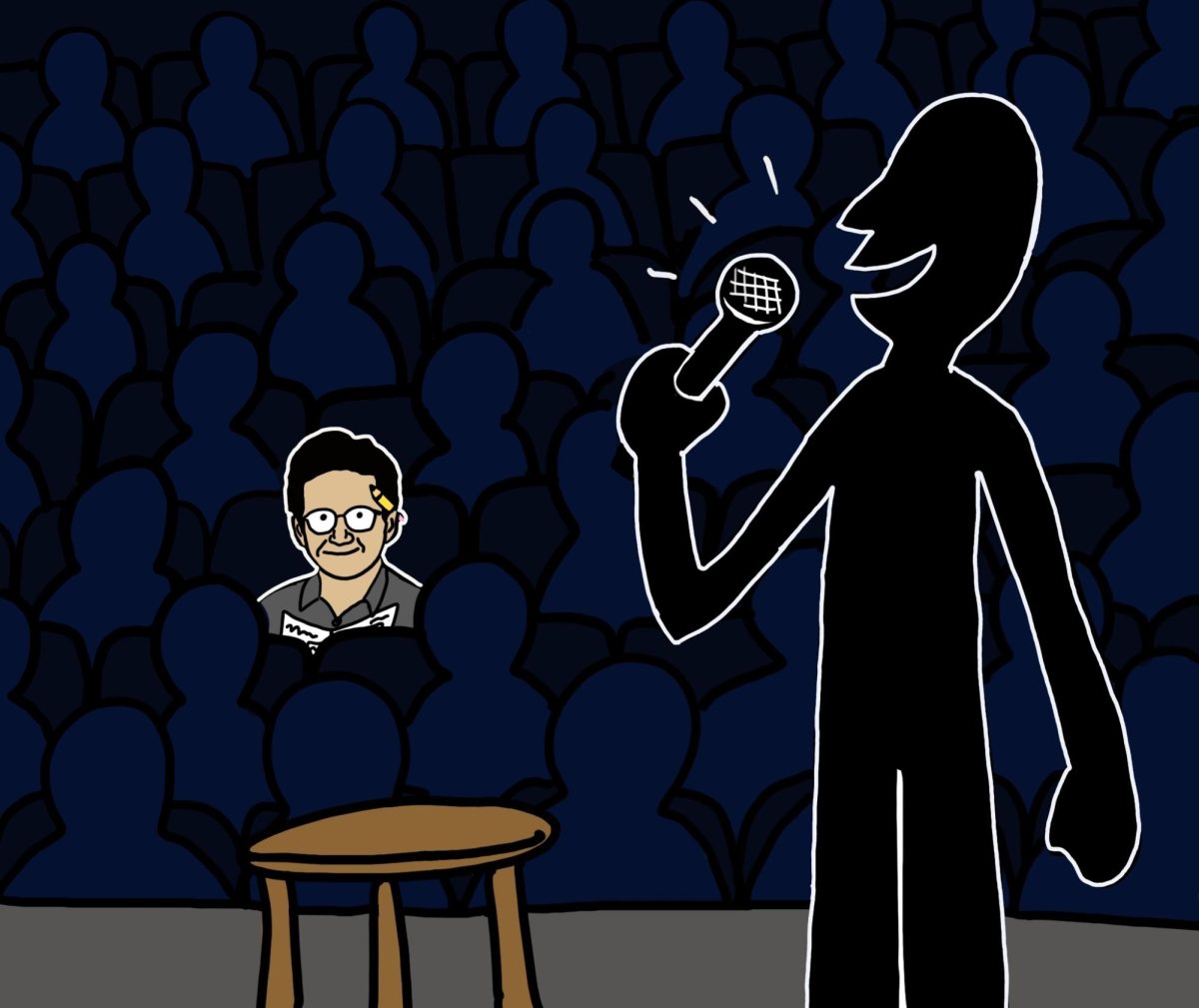On May 2, the Writers Guild of America (WGA) went on strike, seeking higher pay and other improvements to working conditions. Two months later, on July 14, Hollywood actors, who are a part of the Screen Actors Guild – American Federation of Television and Radio Artists (SAG-AFTRA) joined the writers on the picket lines, and both are still striking as of Sept. 18. The writers argue that their working conditions are poor and they’re not being paid sufficiently. This strike is Hollywood’s first since 2007.
The WGA is refusing to work until three major things are improved: protection from AI, increased job opportunities, and higher wages.
One of the main concerns for writers and actors is AI taking over their jobs and likenesses in the future. An NBC article states, “Technology that replicates individuals’ faces and voices is becoming more prominent in Hollywood. Chatbots like ChatGPT, which can convincingly reproduce human writing, have surged in popularity since late last year.” If AI continues to grow within Hollywood, many actors and writers will inevitably lose their jobs.
In addition to losing their jobs to AI, writers are also getting significantly fewer job opportunities due to a decrease in the amount of writers who are needed to work on each episode.
While studios used to have around twelve writers working on a show, they now have four to five. This is a significant drop, which is why the WGA is taking action.
Lastly, the WGA and SAG are demanding higher pay. According to reporting from the Today show ‘The 2023 writers’ strike explained’, “Median weekly writer-producer pay has declined 23 percent over the last decade when adjusting for inflation.” Writers and actors believe that they’re not being paid adequately, so they are refusing to stop striking until compensation is up to par.
The 2007 Hollywood writers strike lasted one hundred days—the current one lasting substantially longer. An article by the Washington Post explaining the details of the past writers strike says the writers wanted “their compensation [to] reflect how technology… affected the creation and consumption of their work.” The goal of these writers was to increase the amount of the residuals they gained with the increase in DVD sales and on-demand video. Residuals are the payment that people who work on films make from their work being replayed or rerun after the original release. These goals are similar to the current ones, with the focus shifting from DVD sales to compensation issues over streaming.
However, the last time both writers and actors were on strike together was over 60 years ago, in 1960. The writers at the time were protesting for studios to pay into pension and health funds, and pay higher wages as well as residuals concerning their work being played for television and television reruns. Television continued to rise through the 1900s, and became a popular source of entertainment beginning in the 50s. As more and more Americans watched movies, shows, and their reruns, the people who made those films wanted their fair share of money that the production companies were making from those reruns. Although the actors and writers were striking together, the 1960 strike lasted over twice as long for writers, with the strike lasting only 42 days for the actors and 97 for writers.
To get more insight into how actors are being affected by the strikes, we interviewed a professional actor who is currently in high school. The student, who is kept anonymous because she is currently participating in the strike, says, “When the writer strike hit, and there were fewer TV shows and movies [being produced] for the big companies, the [number of] auditions that I was getting [became fewer and fewer]. And then once the SAG strike hit, [whereas] I used to get three or four auditions a week, now I get zero.”
Many viewers of television are also being impacted by the strikes, noticing a decrease in the amount of media being released.
“There aren’t as many summer blockbusters…[with only] a couple of big movies that came out this summer,” the student agrees. “I always like to watch a good movie, but with the strike, the big companies that produce the number one on the New York Times’s list aren’t coming out.”
Though there is a notable decrease in media being released, not everything has been brought to a full stop. Shows and movies are still being put on streaming services in the upcoming months that were produced before the strike. Production is halted on nearly every project currently, but since the time between production and release can be so lengthy, there are still movies and shows that can be released.
As far as when this will end, no one can be sure.
“We don’t really know, because there are two really big groups [in the striking unions versus large production companies] fighting against each other,” the student tells.
“We just don’t know which one’s gonna give in first,” the actor concludes. “But hopefully it doesn’t last much longer.”


















